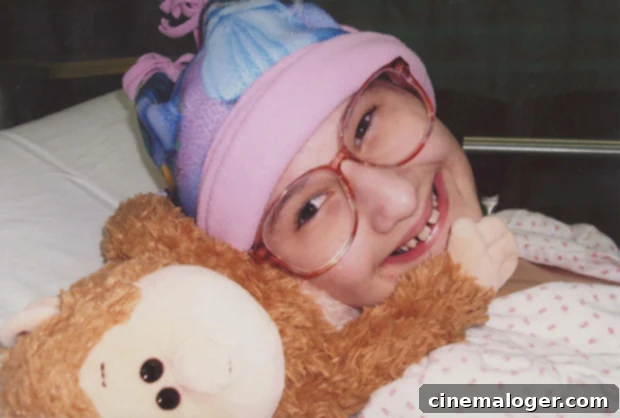Gypsy Rose Blanchard’s Early Prison Release: A New Chapter After Dee Dee Blanchard’s Tragic Murder
After years of captivating national attention, Gypsy Rose Blanchard, 32, has officially been released from prison. Her early release on Thursday, December 28, 2023, marks a significant turning point in a complex and deeply tragic true crime narrative that has resonated with audiences worldwide. Blanchard was granted parole after serving approximately seven years of her initial ten-year sentence, stemming from her involvement in the 2015 murder of her mother, Dee Dee Blanchard.
The highly anticipated moment arrived in the very early hours of Thursday morning at the Chillicothe Correctional Center in Missouri. Gypsy Rose Blanchard was picked up by her husband, Ryan Scott Anderson, signaling the beginning of her new life outside prison walls. Anderson’s vehicle was observed arriving at the facility around 3:30 a.m., an hour cloaked in pre-dawn darkness, as he prepared to reunite with his wife. This quiet, early morning pickup underscored the private yet publicly scrutinized nature of Gypsy Rose’s transition back into society.
The scene outside the correctional facility, as captured and reported by outlets like People, provided a glimpse into this pivotal moment. Ryan Scott Anderson was seen navigating the dark, heading into the building to retrieve Gypsy Rose. His choice of transport, a Cadillac bearing a custom “Hitman” license plate—a nod to the legendary professional wrestler Brett Hart—added an unexpected personal detail to the otherwise somber occasion. This small flourish, visible on the front of his car, offered a unique insight into Anderson’s personality and the personal touches he brought to Gypsy Rose’s release day.

Gypsy Rose’s incarceration began in 2016 following her conviction for second-degree murder. Her case gained notoriety not only for the shocking crime itself but for the disturbing revelations that emerged afterward about her mother, Dee Dee Blanchard. It was uncovered that Dee Dee had subjected Gypsy Rose to severe child abuse, fabricating numerous serious medical conditions for her daughter from infancy. Dee Dee falsely claimed Gypsy suffered from leukemia, muscular dystrophy, seizures, and other debilitating illnesses, forcing her to use a wheelchair, undergo unnecessary medical procedures, and rely on a feeding tube, despite Gypsy being physically capable. This severe form of medical child abuse, now widely understood as Munchausen syndrome by proxy (or Factitious Disorder Imposed on Another, FDIA), also involved Dee Dee deliberately falsifying Gypsy Rose’s age to prolong her exploitation and control.
The psychological and physical torment Gypsy Rose endured for years ultimately led to a desperate attempt to escape her mother’s control. In June 2015, driven by a desire for freedom, Gypsy Rose conspired with her then-boyfriend, Nick Godejohn, whom she had met online. The plan culminated in Godejohn traveling to the Blanchard home and fatally stabbing Dee Dee multiple times. While Gypsy Rose did not physically commit the act, her role in planning and facilitating the murder led to her arrest and subsequent conviction. Godejohn was later found guilty of first-degree murder and sentenced to life in prison, a stark contrast to Gypsy Rose’s lesser sentence, which acknowledged her unique circumstances as a victim of profound abuse.
The story of Gypsy Rose Blanchard quickly transcended a typical crime case, becoming a focal point for discussions on child abuse, mental health, and the complexities of justice. Her narrative has inspired a wave of media adaptations, shedding light on the insidious nature of Munchausen syndrome by proxy. Among the most prominent portrayals are the critically acclaimed HBO documentary Mommy Dead and Dearest, which delved deep into the history of abuse, and the Hulu miniseries The Act, starring Patricia Arquette and Joey King, which dramatized the events leading up to Dee Dee’s murder. These productions brought the harrowing details of Gypsy Rose’s life to a broader audience, fostering both sympathy and debate.
As Gypsy Rose embarks on her post-prison life, her story continues to evolve. She is slated to be the subject of a new, highly anticipated 6-hour documentary special on Lifetime, titled The Prison Confessions of Gypsy Rose Blanchard. This new series promises to offer her personal reflections and perspectives from her time behind bars, providing fresh insights into her journey and experiences. The first part of this in-depth special is scheduled to air on Friday, January 5, offering viewers an intimate look at Gypsy’s thoughts and feelings as she navigated her sentence and prepared for release.
Ahead of her release, Gypsy Rose candidly shared her feelings about the crime in an exclusive interview with People. She expressed profound regret over her mother’s murder, a sentiment she has consistently voiced throughout her incarceration. “If I had another chance to redo everything, I don’t know if I would go back to when I was a child and tell my aunts and uncles that I’m not sick and mommy makes me sick, or, if I would travel back to just the point of that conversation with Nick and tell him, ‘You know what, I’m going to go tell the police everything.’ I kind of struggle with that,” she revealed, highlighting the deep internal conflict she faces. Her remorse is evident as she further stated, “Nobody will ever hear me say I’m glad she’s dead or I’m proud of what I did. I regret it every single day.” This powerful confession underscores the lasting emotional toll of the events and her ongoing processing of her past actions.
Gypsy Rose’s release marks not only a personal milestone but also a significant moment in the public’s continued engagement with her unique story. Her journey from victim of severe abuse to a participant in a murder, and now to a woman seeking a fresh start, raises complex questions about agency, justice, and rehabilitation. As she steps into a world vastly different from the one she left, with her husband Ryan by her side, the public remains keenly interested in how she will adapt and what her future holds. Her intentions to build a normal life, potentially advocate for child abuse victims, and share her experiences responsibly are keenly watched, symbolizing hope for a positive outcome despite a profoundly dark past.
Her case has fundamentally altered perceptions of childhood illness and caregiver dynamics, urging greater vigilance for signs of medical child abuse. The narrative surrounding Gypsy Rose serves as a potent reminder of the silent suffering endured by many and the critical need for intervention. Her transition out of prison and into the public eye will undoubtedly continue to fuel discussions on these vital social issues, solidifying her place as an indelible figure in the annals of true crime and a symbol for survivors of extreme manipulation and abuse.
